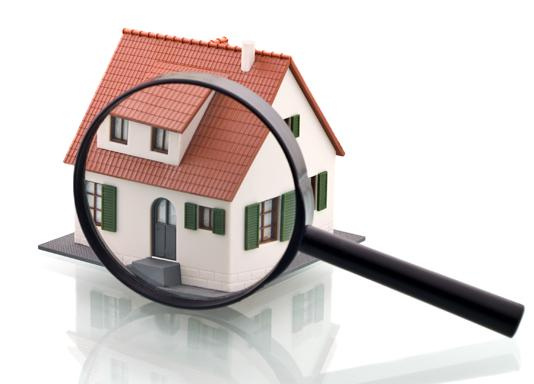Land in Anambra State has shown an impressive rate of value appreciation, with certain areas seeing increases of up to 30% in just a few years. Accurate land valuation is crucial for buyers, sellers, and investors in a rapidly changing market. However, determining the true worth of land can be challenging due to various influencing factors. This article aims to provide clarity on how to assess land value effectively.
Understanding the Anambra State Land Market
Factors Influencing Land Prices
Several factors impact land prices in Anambra State:
- Location: Land in urban centers like Awka typically commands higher prices compared to rural areas.
- Proximity to Amenities: Access to schools, hospitals, and markets increases desirability and value.
- Land Size: Larger plots often have higher total values, although price per square meter may decrease.
- Topography: Flat land usually holds more value than hilly terrain.
- Zoning Regulations: Areas designated for commercial use often have higher prices.
For instance, the average price for land in Awka can reach ₦3,500,000 per plot, while rural areas might offer plots for as low as ₦700,000.
Analyzing Recent Transactions
Studying recent land sales helps establish value benchmarks. For example, a recent sale of a 500-square-meter plot in Awka for ₦4,000,000 reflects the rising demand in the area. Such transactions guide both buyers and sellers in understanding current market trends.
The Role of Government Regulations
Government policies significantly impact land values. Taxes, development plans, and regulations play a role in how land is valued. For example, initiatives like the Anambra State Urban Development plan aim to improve infrastructure, thus enhancing land value in targeted areas.
Assessing Physical Characteristics of the Land
Site Analysis and Topography
Evaluating physical features like soil type, slope, and drainage is essential. For instance, land with a gentle slope often allows for easier construction and better drainage, making it more valuable. Conversely, plots prone to flooding may see reduced demand.
Land Size and Shape
The size and shape of land affect its usability and marketability.
- Regular Shapes: Rectangular plots tend to be more desirable.
- Irregular Shapes: These can limit development options, often resulting in lower values.
For example, a standard 600-square-meter rectangular plot would typically be worth more than an oddly shaped 600-square-meter plot due to its development potential.
Utilities and Accessibility
Access to essential utilities and transportation enhances land value. Plots with available water, electricity, and road access are more appealing to buyers, while those lacking these features may struggle to sell.
Considering Legal and Regulatory Aspects
Land Title and Ownership Verification
A critical step in the valuation process is verifying land ownership. Potential buyers should conduct thorough due diligence to check land titles. Request documentation and verify with local land registries to avoid issues later.
Zoning Regulations and Development Potential
Zoning laws dictate what can be built on a piece of land. Certain classifications, such as commercial zoning, will significantly raise land value due to increased development potential. For instance, a residentially zoned plot may sell for ₦1,500,000, while a commercially zoned plot might fetch ₦3,000,000 or more.
Encumbrances and Restrictions
Identifying any encumbrances, like mortgages, liens, or easements, is vital. These can reduce the land’s value or complicate future sales. Always conduct a title search to uncover any restrictions.
Employing Valuation Methods
Comparative Market Analysis (CMA)
CMA involves comparing similar properties in the area. Identify comparable sales, adjust for differences, and use this information to gauge a fair price for your land.
Income Capitalization Approach
This method estimates land value based on potential rental income. For example, if a piece of land could generate ₦500,000 annually and the investor seeks a 10% return, the land’s value would be ₦5,000,000.
Cost Approach
The cost approach focuses on assessing the cost of replacing improvements on the land. Calculate the value of existing structures minus depreciation to estimate the overall land value.
Expert Input and Professional Advice
Seeking Professional Valuation Services
Hiring registered valuers is highly recommended. They provide accurate assessments and insights, ensuring you make informed decisions. “A professional valuation can prevent costly mistakes in a volatile market,” notes a local real estate expert.
Navigating Legal and Administrative Processes
Understanding the legal steps involved in land transactions is essential. This includes handling paperwork and local regulations to avoid costly delays.
Understanding Valuation Reports
A professional valuation report includes property details, analysis, and conclusions. Key elements to look for are comparison sales data, legal considerations, and assumptions made during the assessment.
Conclusion
Assessing land value in Anambra State involves understanding market dynamics, evaluating physical characteristics, and addressing legal aspects. Conduct thorough due diligence and seek professional advice to make informed decisions. Remember, taking time to gather accurate information will pay off in the long run. Start your journey towards a smart land investment today by researching your options and consulting with experts in the field.

ABOUT THE AUTHOR
AdHang is a top Real Estate Digital Marketing Agency located in Nigeria, with over 15 years of experience in digital marketing in Africa. The agency has helped many companies across the globe to reach millions of target clients and prospects via the Internet.






